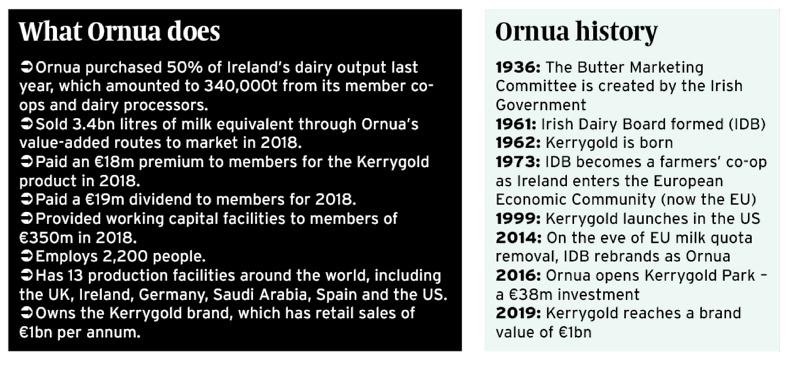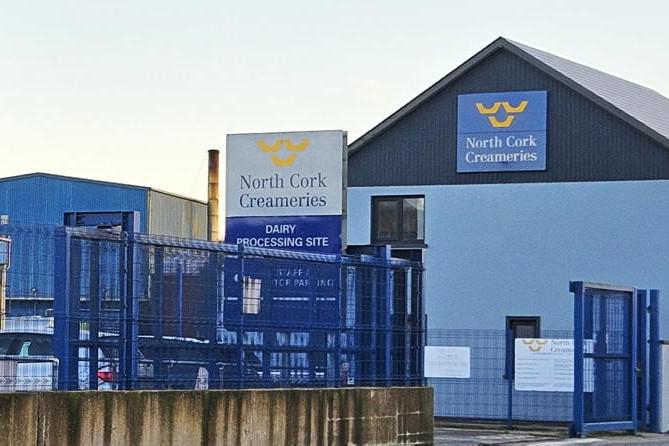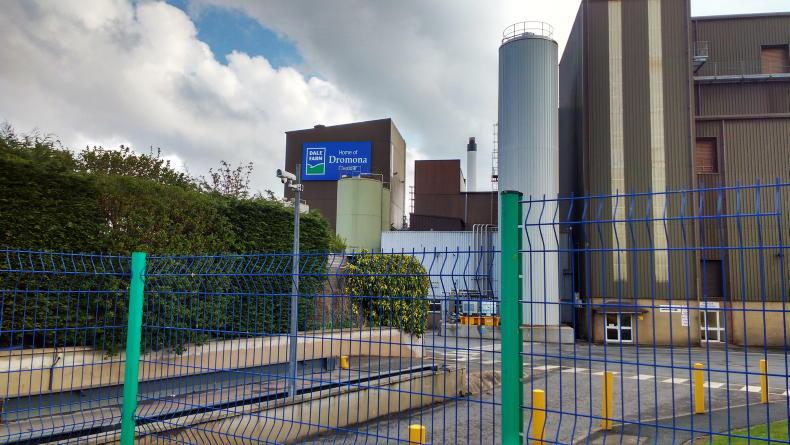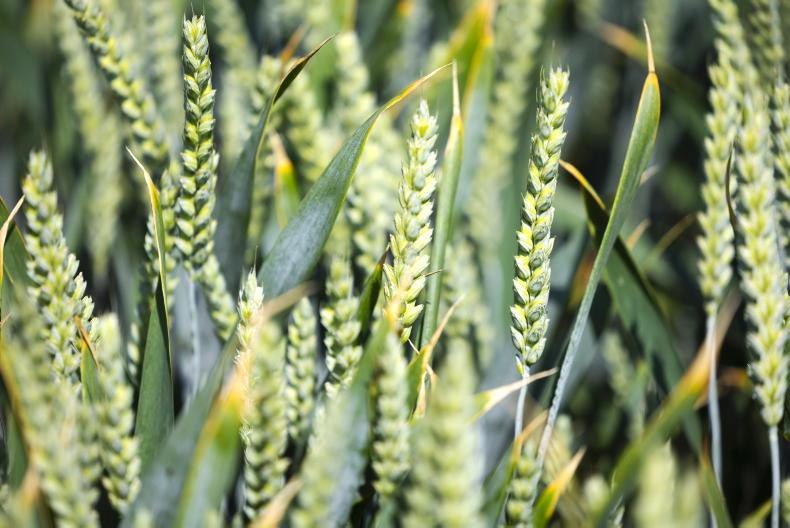Why is there a need to restructure Ornua?
There have been issues around the Ornua board table for almost a year and came to a head following Glanbia’s announcement to launch its Truly Grass Fed brand in the US. While the Glanbia move was not the sole reason, it was the catalyst that initiated the discussions. An independent review since found that all directors believe there is a major issue at board level and that a review of governance is needed. The main issue is that there are a number of conflicts of interest – which mainly relate to members competing with Ornua in some markets. Many also believe the board is too large which makes it difficult to make decisions and impedes instead of supports decision-making.
Who is conflicted?
Ornua owns the €1bn Kerrygold brand. Therefore, members with competing brands are most conflicted. Others who do not have brands competing with Ornua brands believe they are not conflicted. The farm organisations are least conflicted, according to the independent review.
Is there a need for change?
The board has been described as dysfunctional. Certain members step out of parts of meetings when areas of conflict or perceived conflict arise. Members are unable to fulfil duties as directors if not setting strategic directions, budgets, reviewing management’s strategic plans and monitoring execution of the plans. Individual members currently hold three roles: directors of Ornua, owners and suppliers.
What change is needed?
The board cannot reach a consensus on what needs to change. Some believe the governance issues can be resolved by adopting better corporate governance practices within the existing structures. However, others believe that governance could be resolved by creating a new corporate structure such as a plc, either listed or unlisted.
What options have been raised?
A smaller board has been proposed along with the need for international brand marketing skills. Another proposal sought to establish an independent board and have an advisory council. An option to split out the Kerrygold brand under a separate board was also mentioned. There was also strong support from some members to retain the status quo.
Why has Dairygold put its own proposal to the Ornua Board?
It believes it is totally unacceptable that the board has not yet been able to consider the budget or business strategy for the year in depth. Dairygold believes that the board dysfunction is preventing Ornua from delivering optimal performance. Dairygold (along with other conflicted members) also received a letter from Denis Cregan as chair of the governance review requesting the Dairygold CEO and chair step down from the board and be replaced by “non-conflicted” Dairygold suppliers.
What has Dairygold proposed?
Dairygold believes that Ornua governance challenges are intertwined with the corporate structure and that the former cannot be addressed independently of the latter. Dairygold is proposing to convert Ornua from a co-op structure into an unlisted plc, 80% owned by member dairy co-ops and 20% owned by eligible dairy farmers. Ornua plc will not be publicly listed on the stock maret.
What is the benefit to the member co-ops?
Under the restructure proposal, 80% of the Ornua plc business would be owned by Ornua’s existing dairy co-op members, in proportion to their current shareholding in Ornua. This has a value of circa €416m based on Ornua’s 2018 balance sheet. The proposed new company structure is expected to strengthen the ability of member co-ops to develop their respective businesses by unlocking their shareholding value in the Ornua asset and having it recognised on their own co-op balance sheets.
What would farmers get?
Dairy farmers would get direct ownership and a shareholding value in Ornua plc up to 2c per litre based on 2018 milk supply. This would amount to a one-off share spin-out valued at €104m to farmers and be worth €10,000 to a farmer supplying 500,000 litres last year. Dairygold believes this proposal would enable farmers to become more involved with the business as they would be shareholders.

What about the board?
It is proposed to create a new non-conflicted board and an advisory council. The 25-member advisory council would be made up of nominees of the shareholding co-ops, IFA, ICMSA and ICOS. The advisory council would nominate five of its members to the 12-member Ornua plc board. If these members are co-op board members, they must resign from their respective co-op boards for the duration of their Ornua plc board membership. The board would also include the two farm organisation representatives – IFA and ICMSA. There would also be five independent directors on the board. These would be food industry experts with international experience, one of whom would be the independent chair.
Who will control Ornua plc?
Upon conversion, the ownership of the new plc entity would be split 80% to member co-ops and 20% to eligible milk suppliers of those co-ops. No single co-op could own more than 29.99% of Ornua plc. In the event of co-op mergers, the voting rights held by any co-op as enlarged by a merger would not be allowed to exceed 49.99% of votes among co-op members. Member co-ops’ shares in Ornua plc could only be sold to other member co-ops holding Ornua shares.
Why create an unlisted plc?
Currently there is no liquidity in the shares in Ornua Co-op and there is no mechanism in place to realise value for member co-ops’ respective investments in Ornua Co-op. Liquidity could be realised under the new structure. Ornua plc shareholders could trade shares subject to ownership being 100% controlled by co-ops and eligible milk suppliers. This would give more options to members looking for liquidity to fund other capital projects.
What would be needed to make it happen?
The Dairygold proposal to restructure to an unlisted plc and create an advisory board would need to be approved (simple majority) by the current Ornua board in the first instance. It would then have to be put to the shareholding members, through specially convened special general meetings. SGM approval for the plc conversion would require a vote of approval by 75% of the current Ornua shareholders at an initial SGM and by 50%+ 1 at a second (confirmatory) SGM. Ornua is currently owned by 33 shareholding members, each of whom has one vote at an SGM on the conversion resolution. The proposed Ornua plc restructure would also require the approval of ICOS and consultation with the Minister for Agriculture.










SHARING OPTIONS